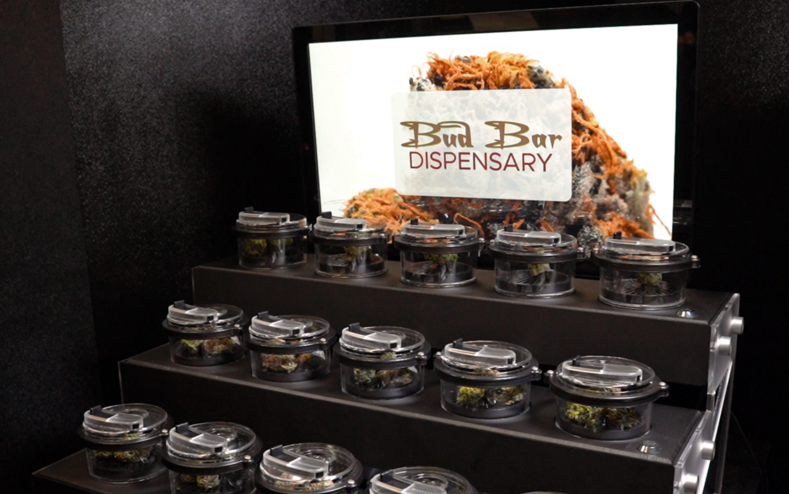Lapses in cultivation practices and decontamination protocols often have dire consequences for a cannabis company’s bottom line.
When cannabis cultivation goes wrong, the consequences extend far beyond the grow room.
From contaminated products to operational shutdowns, cutting corners in decontamination can
unravel a brand’s hard-earned progress, eroding customer trust and market position in the
process
Here are five ways skimping on decontamination can threaten your brand’s compliance, quality,
operations, reputation, and profitability.
Compliance Failures
Cannabis faces some of the strictest regulations in the agricultural industry. Failing to meet them
is a nonstarter. States enforce these regulations to protect consumers and employees, and
violations often result in significant fines, license suspensions, or even permanent closures.
In 2024, Curaleaf and Ascend, two multistate cannabis companies with operations in Central
Massachusetts, were fined a combined $165,000 by the state’s Cannabis Control Commission
for multiple compliance failures, including issues with labeling and product safety. These kinds
of violations drain financial resources, disrupt operations, and tarnish reputations.
Compliance failures also extend to workplace safety. A recent CDC report highlighted
hazardous conditions in cannabis cultivation facilities, including exposure to airborne endotoxins
and poor air quality linked to inadequate decontamination. Violating OSHA standards or state
health and safety laws endangers workers and leaves businesses vulnerable to lawsuits and
steep regulatory penalties.
Product Quality Issues
Cutting corners in decontamination has a direct impact on product quality. Mold, yeast, bacteria,
and other contaminants degrade potency, compromise safety, and violate state testing
standards. In 2023, Colorado marijuana regulators issued a record 17 cannabis product recalls,
up from just three recalls in 2019, after a new testing mandate for aspergillus, a type of mold,
was established. Discoveries of aspergillus—as well as salmonella—often arise from
inadequate cleaning and decontamination procedures.
Failures in product quality aren’t isolated incidents—they indicate systemic problems in
cultivation or processing. Poor decontamination practices weaken product integrity and
jeopardize safety standards. If a single batch fails lab tests, it can raise red flags for consumers
and dispensaries, impacting future sales. Brands that prioritize decontamination maintain
consistent quality, reinforcing their reputation for safe and potent products.
Operational Disruptions
Contamination events disrupt entire operations. When contaminated batches are identified,
production must be halted, facilities decontaminated, and products retested. This process
creates downtime that drains resources, delays shipments, and frustrates customers.
In Michigan’s 2021 recall, the Marijuana Regulatory Agency ordered the removal of 64,000
pounds of cannabis from over 400 dispensaries due to unreliable lab results. This massive
recall, valued at $229 million, led to weeks of operational chaos. Supply chains were disrupted,
employees scrambled to manage returns, and businesses faced mounting costs for remediation
and retesting.
Smaller operators are especially vulnerable to these disruptions. Unlike large multi-state
operators, small and mid-sized businesses often lack the resources to absorb such setbacks. A
single contamination event can stall growth, delay expansion plans, and force layoffs or
closures.
Reputational Damage
Consumers and dispensaries seek products they can trust, and any contamination incident can
severely undermine that trust. Negative press, adverse customer reviews, and social media
backlash can persist long after a recall is addressed.
A nationwide survey found that 80% of American cannabis consumers believe cannabis
products are grown and produced using consistent safety standards. When those expectations
aren’t met, trust evaporates. Once again, smaller operators suffer the most here.
“Mom-and-pop” cannabis shops with a thin financial cushion can’t weather a PR storm of this
magnitude.
Reliable decontamination processes are essential to protecting a brand’s reputation, retaining
consumer trust, and propping up the brand for long-term growth. Cutting corners may seem like
a shortcut, but the reputational damage can leave brands stuck in place while competitors move
forward.
Financial Losses
The cannabis industry is poised for substantial financial growth, with U.S. sales projected to
reach $33.6 billion by the end of 2024 and potentially $53.5 billion by 2027. For businesses in
this space, the potential for profit is significant—but only if they can maintain consistent quality
and safety standards.
Cutting corners in decontamination threatens this financial windfall. Contamination incidents
lead to costly recalls, regulatory fines, and damaged relationships with dispensaries and
consumers. More critically, they can force businesses to miss out on market opportunities with a
single contamination event stalling progress while competitors seize the moment.
Investors and stakeholders are watching closely. Companies with a track record of
contamination are viewed as high-risk, limiting access to capital that fuels expansion.
Dispensaries, likewise, prefer to stock reliable brands, and once shelf space is lost, regaining it
is a daunting challenge. The cost of rebuilding consumer trust—through marketing, quality
assurance campaigns, and rigorous testing—diverts resources from growth initiatives.
Why Reliable Cannabis Decontamination Solutions Matter
As demand grows and regulations tighten, the risk of contamination—from mold, bacteria, or
other pathogens—can’t be ignored.
Companies such as XRpure are advancing decontamination standards with X-ray irradiation
systems designed for precision and efficiency. Their approach avoids chemical treatments,
focusing instead on non-invasive methods that preserve product integrity while reducing
contaminants.
In an industry where margins are tight and expectations are high, efficiency and reliability are
key. Technologies that emphasize energy efficiency and long-term performance help cannabis
cultivators stay productive, compliant, and competitive. Cutting corners is never the prudent
course of action. Instead, investing in reliable decontamination is what keeps operations moving
and brands growing.
Author
-

Cannabis & Tech Today is the premier publication for inspiring business profiles, exclusive interviews with thought leaders in the field, science innovations, and insights on new legislation and growth in the cannabis market.






